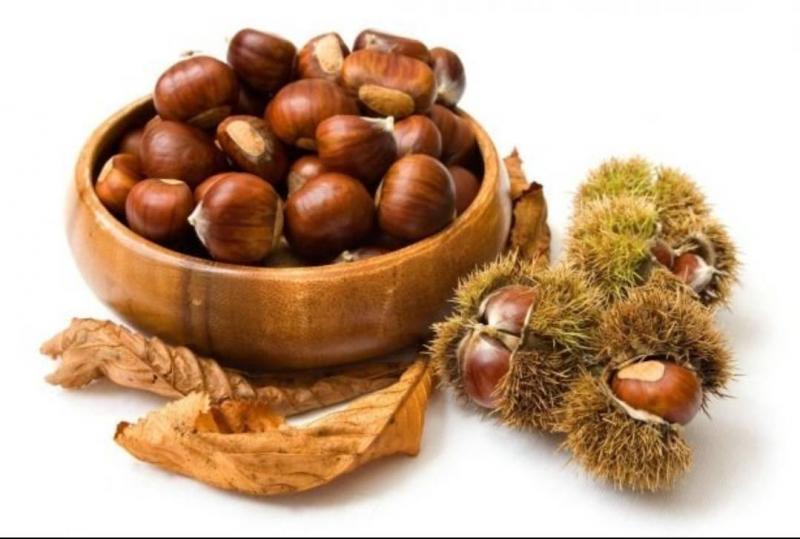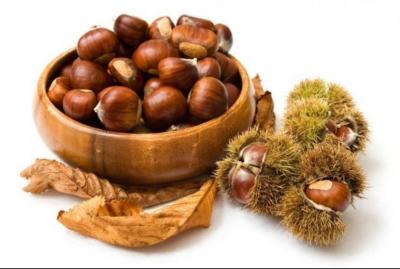Chestnuts, also known as "Abu Furwa," are one of the favorite nuts during winter, rich in essential nutrients that warm the body.
Nutrition expert "Mona Nasser" highlighted a range of nutritional benefits of chestnuts due to their composition of various nutrients, as reported by "Sputnik." Chestnuts are a good source of fiber, which is known to promote and regulate bowel function, and they reduce the risk of developing certain types of cancer, such as oral, stomach, esophageal, and breast cancer.
The benefits of chestnuts, as noted by the nutrition expert, include:
**Fiber:** Chestnuts are rich in fiber, which aids digestion and lowers cholesterol levels in the blood by reducing absorption in the intestines.
**Fatty Acids:** Chestnuts are high in unsaturated fats and contain folic acid, which plays an important role in red blood cell production.
**Vitamin C:** Chestnuts contain a large amount of Vitamin C, which not only contributes to building teeth and bones and maintaining blood vessels but is also rich in antioxidants that protect against the growth of malignant cells.
**Minerals:** They are a rich source of minerals such as magnesium, calcium, iron, manganese, phosphorus, zinc, and potassium, which help reduce heart rate and protect against anemia.
**Carbohydrates:** Chestnuts are rich in carbohydrates, providing the body with energy needs, and they aid the nervous system in its functions.
**Protein:** Chestnuts, especially those produced in China, are a rich source of plant protein in the diet.




